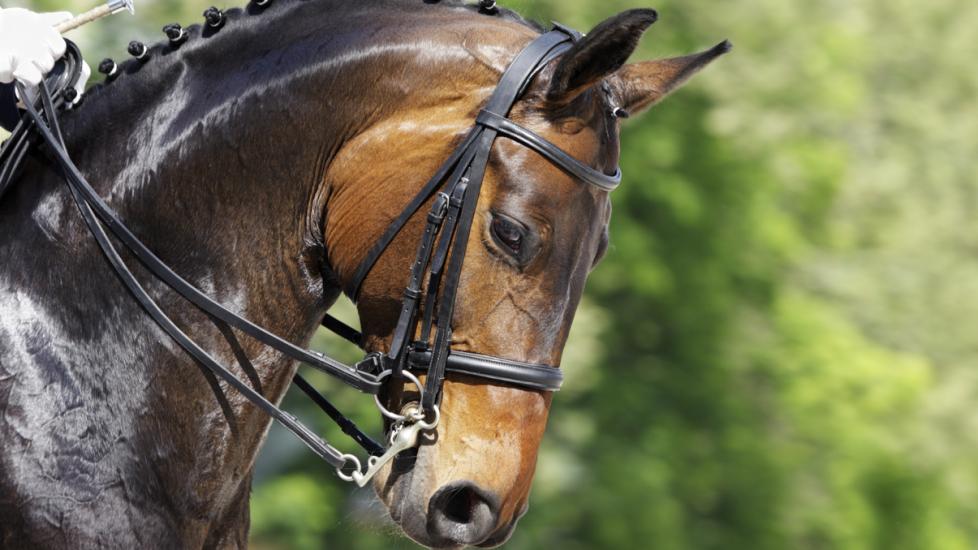Neurological Problems in Horses
Signs of Neurological Problems in Horses
Neurological problems in horses can be challenging to diagnose and treat. These conditions can range from mild to fatal depending on the condition, and how soon signs are recognized.
There are several clinical signs that may indicate a neurological problem in horses. These signs may include:
-
Ataxia: a lack of coordination and unsteady gait
-
Difficulty standing or walking
-
Head pressing: pushing the head against a solid object
-
Muscle tremors or twitching
-
Loss of balance or falling
-
Circling or turning in circles
-
Abnormal eye movements
-
Seizures
If you observe any of these signs in your horse, contact a veterinarian immediately.
Veterinary Diagnosis: The Neurological Exam
When a veterinarian examines a horse for neurological problems, they will usually perform a complete physical examination, including a neurological exam. The neurological exam will typically involve several tests, including:
-
History and observation: obtaining a thorough history from the owner or caretaker of the horse. This history may include information about the horse's diet, any recent travel, injuries, or illnesses, vaccination status, and any medications the horse is currently taking. The veterinarian will also observe the horse's behavior and posture, looking for any abnormalities in movement or coordination.
-
Gait evaluation: watching the horse walk and trot in a straight line if not severely wobbly, as well as in circles. The veterinarian will observe the horse's head and neck position, the placement of the limbs, and the rhythm of the gait. Any abnormalities in movement or coordination may indicate a neurological problem.
-
Sensory evaluation: applying stimuli, such as pressure or temperature, to different parts of the horse's body and evaluating the horse's response. The veterinarian will look for any areas of decreased sensitivity, which may indicate nerve damage or dysfunction.
-
Cranial nerve evaluation: observation of the horse's eyes, ears, and facial muscles, looking for any abnormalities in movement or function.
-
Neurological assessment: an overall assessment of the horse's neurological function. This assessment will take into account the horse's gait, reflexes, sensory function, and cranial nerve function, along with other tests to determine proprioception (knowing where your limbs are in space) deficits, and muscle weakness. This test might include:
-
Crossing over your horse’s feet one in front of the other to see if they correct the wrong foot placement on their own.
-
Having your horse walk with their head elevated or blindfolded to see how confident they are at the walk
-
Backing up
-
Turning in tight circles to check for proper foot placement
-
Walking on an incline to look for stumbling or toe dragging
-
A “tail pull” at the walk, to check for significant weakness of the hind end
-
If the veterinarian suspects a neurological problem, they may also recommend additional diagnostic tests, such as bloodwork or cerebrospinal fluid (CSF) sampling, radiographs, or an MRI.
Causes of Neurological Problems in Horses
Many neurological problems in horses have similar symptoms, which make them difficult to diagnose and treat in many cases. There are several common neurological diseases that can affect horses, such as:
-
Trauma: if a horse pulls back and falls on their neck on a hard surface, it is very possible to cause damage to the spinal cord or neck, which can lead to issues to any part of the body innervated beyond the original point of damage. This can lead to incorrect neck or head carriage, weakness, respiratory issues, or paralysis.
-
Equine Protozoal Myeloencephalitis (EPM): a parasitic infection that affects the central nervous system. EPM is typically caused by the protozoan Sarcocystis neurona and can result in ataxia, muscle wasting, and other neurological symptoms.
-
West Nile Virus (WNV): a viral infection that is transmitted to horses through mosquito bites. The virus can cause fever, decreased appetite, weakness, muscle twitching, ataxia, and other vague symptoms.
-
Encephalitis (EEE, VEE, and WEE): Eastern, Western, and Venezuelan Encephalitis are also caused by viruses transmitted by mosquitos. These diseases cause inflammation in the brain, and can cause depression, fever, circling, head pressing, and paralysis.
-
Equine Herpesvirus (EHV): a viral infection that can cause respiratory and neurological symptoms in horses. The neurological symptoms of EHV may include ataxia, incoordination, and paralysis.
-
Cervical Vertebral Stenotic Myelopathy (CVSM) or “Wobblers”: a condition in which the spinal cord is compressed due to narrowing of the spinal canal. This can result in ataxia, weakness, and other neurological symptoms.
-
Equine Motor Neuron Disease (EMND): a neurological condition that affects horses' motor neurons. This can result in muscle wasting, weakness, and other neurological symptoms.
-
Tetanus or Botulism: neurological conditions caused by bacteria that attack the nervous system. These are commonly found in the ground, or in moldy hay in the case of botulism.
-
Rabies: another viral cause of neurological disease in horses, that is easily preventable with yearly vaccination. Common clinical signs include ataxia, behavioral changes such as fear or aggression, self-mutilation, circling, or lethargy.
Some of these conditions can be managed if caught early, and your horse can recover, whereas others are often fatal, or potentially spreadable to other nearby horses. Because neurological diseases can often show similar symptoms, it is important to call your veterinarian immediately if you observe any strange behavior in your horse; also refrain from putting your hand in your horse’s mouth, as some of these diseases can be contagious, and avoid placing yourself in a dangerous situation since these horses often aren’t in control of their own bodies. Preventative measures for neurological conditions include:
-
Safety measures when trailering, tying, or washing your horse. Common traumatic injuries occur in slick wash racks.
-
Clean, non-moldy hay
-
Parasite control
-
Yearly or biannual vaccination as recommended by your veterinarian
Featured Image: iStock.com/Somogyvari
